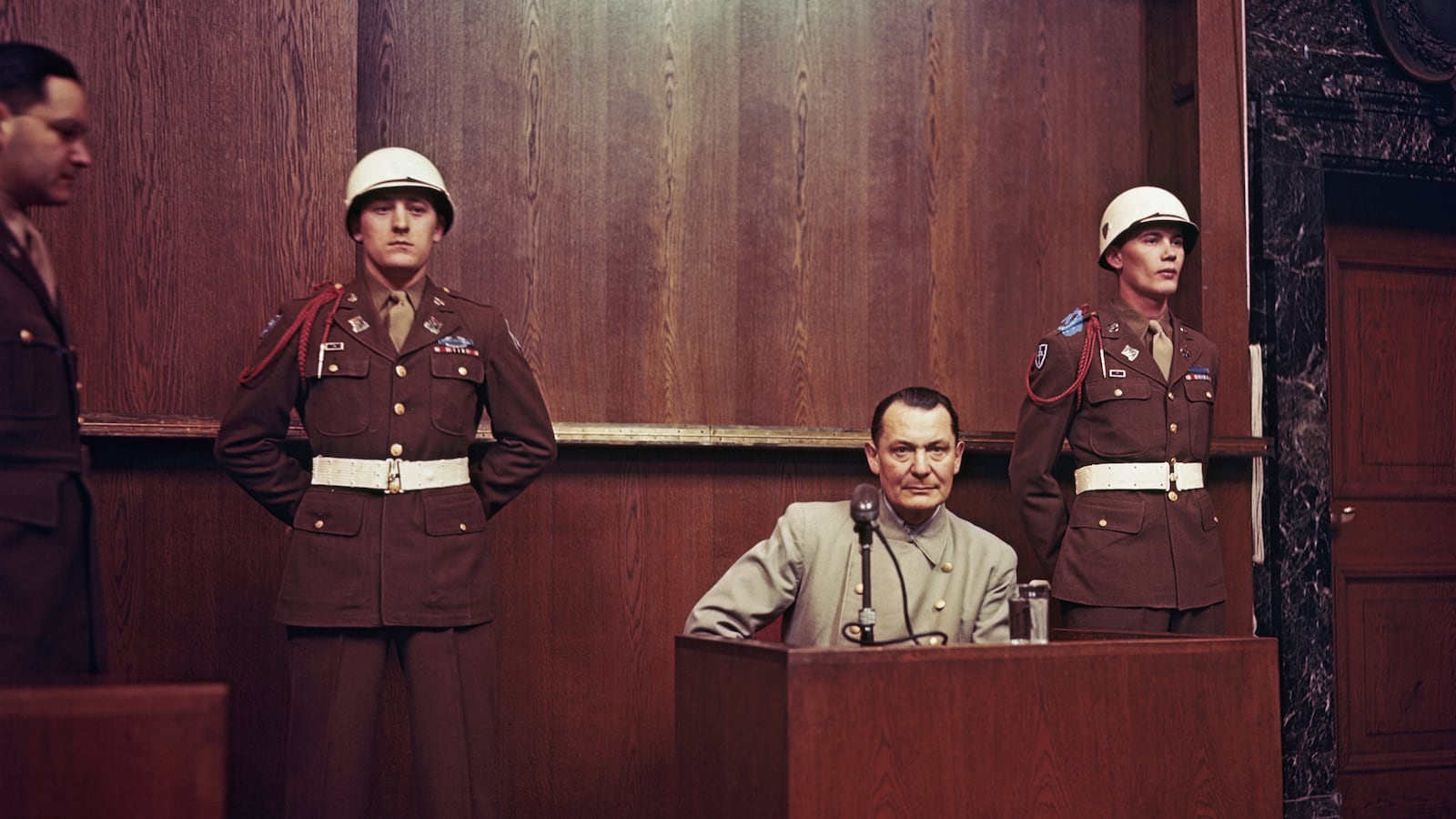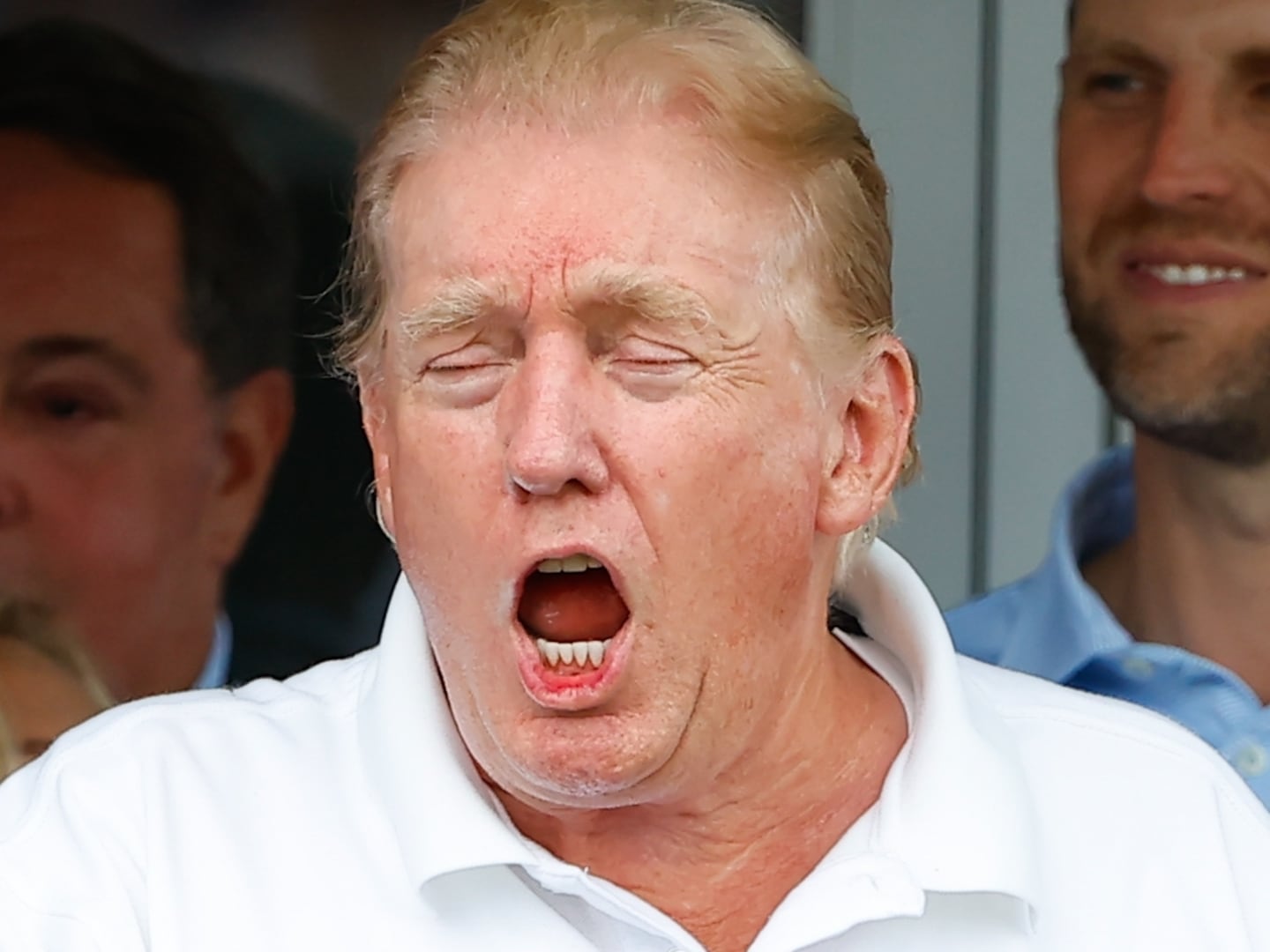Seventy year ago, the 1945-46 Nuremberg Trials of Nazi Germany’s top surviving wartime leaders reached their climax. On October 1, 1946, 19 of the 22 Nuremberg defendants were found guilty of war crimes. It had taken 315 days since the start of the trials for the International Military Tribunal that the United States, Great Britain, France, and the Soviet Union formed at the end of World War II to reach the decisions that still shape our views of international law.
The charges—conspiracy to wage aggressive war, waging aggressive war, crimes against the conduct of war, crimes against humanity—were of such magnitude that only six of the Nuremberg defendants were convicted on all four counts, but the picture of Nazi Germany, based largely on German records, that the trials revealed was enough to horrify the world.
Today, it remains important for us to remember the sentencing anniversary of the Nuremberg Trials. The precedents set at Nuremberg are often ignored. Thanks to his Russian protectors, Syria’s president, Bashar al-Assad has, at present, has no fear of being brought to trial for the atrocities he has committed against his own people.
But the Nuremberg Trials continue to offer us a unique example of how to deal with those accused of war crimes or genocide, and with the passage of time, it is easy to forget that in 1945-46 there was powerful opposition in America to the trials.
The debate in America over the Nuremberg Trials was personified by the clash between Nuremberg’s most visible defender, Supreme Court Justice Robert Jackson, the chief prosecutor for the United States at Nuremberg, and the trials’ best-known political critic, Senator Robert Taft of Ohio, the leading Republican conservative of the ’40s and the son of former president and former chief justice of the Supreme Court, William Howard Taft.
Jackson and Taft never confronted each other directly, as Abraham Lincoln and Stephen Douglas did in their 1858 Illinois race for the Senate. As a result, Jackson’s and Taft’s differences over the legitimacy of the Nuremberg Trials lacked the drama of the Lincoln-Douglas debates over the extension of slavery into the territories of pre-Civil War America.
The stakes in the competing positions Jackson and Taft took with respect to the Nuremberg Trials were momentous, though. After Nuremberg, the excuse of following orders, even when used by military officers, could no longer be relied on as a defense for war crimes or genocide in a formal legal setting.
Taft’s opposition to the Nuremberg Trials gained national headlines when on October 5, just days after the trials’ verdicts were announced, he voiced his opposition to Nuremberg in a speech he delivered at Kenyon College in Gambier, Ohio, for a conference on the heritage and responsibilities of the English-speaking peoples. Taft based his remarks on a speech he had delivered in February in Dallas, Texas, but the timing of his Kenyon speech made all the difference in the level of attention he got.
Taft had no sympathy for Germany’s leaders. He found them despicable. But he thought their trials at Nuremberg were a blot on America. “They violate that fundamental principle of American law that a man cannot be tried on an ex post facto statute,” he declared. “The trial of the vanquished by the victors cannot be impartial no matter how it is hedged about with the forms of justice.”
Taft emphasized that his deepest objection was to what he regarded as an abuse of the justice system. He would, he confessed, have no problem with the Allies simply locking up the Nuremberg defendants for the rest of their lives on the grounds that they might stir up another war. “That was the basis for the imprisonment of Napoleon,” he wrote the syndicated columnist Westbrook Pegler.
Jackson’s worries were the opposite of Taft’s. Punishing Germany’s leaders without a trial only reinforced the idea that might makes right, he believed. As far as he was concerned, the Third Reich presented the United States and its Allies with a question they could not avoid: “Must such wrongs either be ignored or redressed in hot blood?”
Jackson’s answer was that the end of the war created an opportunity to put international law on new footing by building on old precedents. The idea that America and its Allies were only asserting victor’s justice seemed ahistorical to Jackson. “Either the victors must judge the vanquished or we must leave the defeated to judge themselves. After the first World War, we learned the futility of the latter course,” he observed in his opening statement at the Nuremberg Trials.
There was, Jackson went on to say, legal precedent for judging Germany, if not for the actual Nuremberg Trials. In the Geneva Protocol of 1924 and the Kellogg-Briand Pact of 1928, wars of aggression had been outlawed. The laws about just and unjust wars had developed much as the Common Law, Jackson insisted. “I am not disturbed by the lack of judicial precedent for the inquiry we propose to conduct,” he concluded. It was enough for the Nuremberg Trials to show the law was not “so laggard as to be utterly helpless to deal with crimes of this magnitude.”
Jackson’s opening and closing statements at Nuremberg were not a perfect answer to all the issue that the trials raised, and a decade later Robert Taft’s condemnation of the Nuremberg Trials received a boost when future president John Kennedy in his Pulitzer Prize-winning Profiles in Courage of 1956 praised Taft for his “unhesitating courage” in taking the stance he did over the Nuremberg Trials.
But Jackson, like Lincoln in his debates with Douglas, turned out to have the enduring voice. Because of the Nuremberg Trials, Germany was forced to face its past in ways it otherwise might have avoided. Figures like air force chief Hermann Goring and foreign minister Joachim von Ribbentrop never got the chance to become martyrs in postwar Germany or hamper Germany’s later integration into Western Europe.
The Nuremberg Trials continue to offer precedents that can fill critical gaps in international law. Earlier this year, a United Nations International Criminal Tribunal convicted former Bosnian Serb leader Radovan Karadžić for his role in the siege of Sarajevo and the slaughter of 8,000 Muslim men and boys in Srebrenica during the Bosnian War of 1992-95.
Yet the Nuremberg Trials do not offer a clear precedent for how victorious nations should go about judging their own wartime deeds. This failing deeply worried Telford Taylor, who, after working alongside Robert Jackson, became chief prosecutor at the war crimes trials that continued at Nuremberg from 1946 through 1949. “The laws of war do not apply only to the suspected criminals of vanquished nations. There is no moral or legal basis for immunizing victorious nations from scrutiny,” Taylor observed in the conclusion to his 1992 memoir, The Anatomy of the Nuremberg Trials.
Germany’s wartime atrocities paved the way for America and its allies, especially the Soviet Union, to avoid self-scrutiny at the end of World War II, and the result was a lost opportunity. Had America and the allies been more willing to examine their own wartime actions, they would have ended up extending the spirit of the Nuremberg Trials, making them even more important to the present than they already are.
Nicolaus Mills is professor of American studies at Sarah Lawrence College and author of Winning the Peace: The Marshall Plan and America’s Coming of Age as a Superpower.






